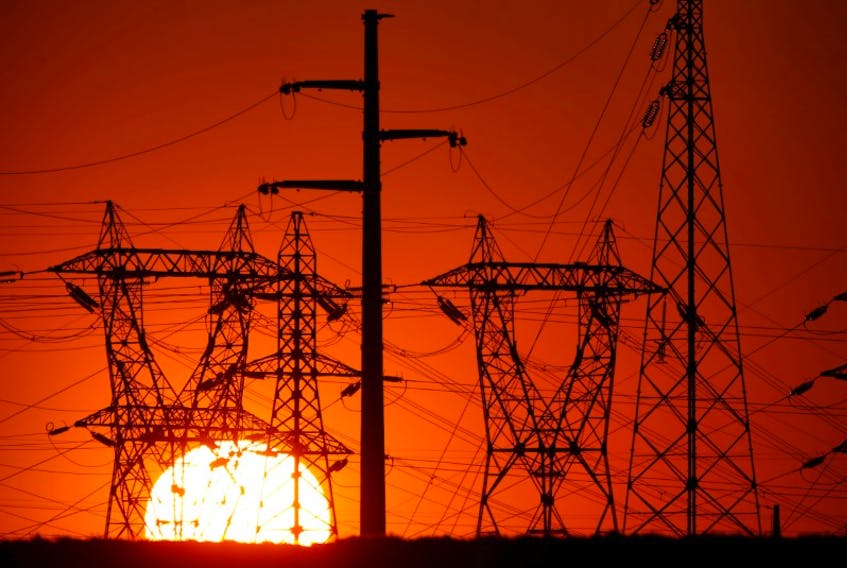By Stephen Culp
NEW YORK (Reuters) - U.S. utility stocks have started to look like bargains after being considered expensive relative to the broader market for well over a year. Still, the outlook is far from certain as demand this summer is set to be hard hit by the contraction in commercial and industrial usage.
Electricity use typically peaks in the summer as air conditioning units in homes, offices and factories are cranked up. But COVID-19 lockdowns have shuttered businesses and shifted many workers away from the office park and into home offices.
"There's still some downside ahead as the economy is concerned, and utilities would be a way to be defensive and protect your portfolio during a recession," said Robert Pavlik, chief investment strategist at SlateStone Wealth LLC in New York.
Grid operator New York ISO said on Thursday lockdowns "led to an 8-10% drop in overall electricity usage throughout the New York Control Area." It did not specify a time period.
"The state's grid is well-equipped to handle forecasted summer demand," said Wes Yeomans, vice president of operations at New York ISO, whose summer 2020 peak load forecast is down from the previous year.
Reduced load forecasts are unsurprising, with business activity posting record plunges in the Atlantic region and across the country.
Both the New York Federal Reserve's Empire State business index and the Institute for Supply Management's more broad, nationwide purchasing managers' index have shown drastic contractions, plunging well within recession territory.
(Graphic-Empire State: https://graphics.reuters.com/USA-STOCKS/xegpbyaqevq/empirestate.png)
(Graphic-ISM PMI: https://graphics.reuters.com/USA-STOCKS/xklpygdbopg/ism.png)
Some utilities may be more vulnerable to lockdown pressures, depending on the regions they serve. "Utilities with large commercial-industrial customers could see record-breaking demand drops," wrote Andrew Bischof, senior equity analyst at Morningstar, in a research note.
Northeastern utilities, which have a high concentration of commercial/industrial and residential customers, all mentioned this demand drop in their recent earnings calls.
Consolidated Edison
Public Service Enterprise Group Inc
"I do think what you're going to see is a downward trend or downward pressure on the commercial sales," Philip Lembo, chief financial officer of Eversource Energy
Utility revenue could also face headwinds from emergency measures to ease financial hardships due to unprecedented pandemic-related job loss, including suspension of past due collections and late fees.
Still, after underperforming the broader market over the last 12 months, utilities, considered a "safe-haven" bond proxy, have appeared relatively cheap.
(Graphic-Utilities valuation and performance: https://graphics.reuters.com/USA-STOCKS/azgpobrxyvd/utilities.png)
Many unknowns lie in wait for utilities this summer. The National Oceanic and Atmospheric Administration's 2020 Atlantic Hurricane Outlook predicts a 60% chance of an above-normal season.
Additionally, while northeastern utilities have observed a slight uptick in residential electricity demand, a painful economic recovery could cap those benefits.
"If I'm a factory worker and the line is shut down, my income is going to be impacted," Pavlik added. "So am I going to run the air conditioner or open my windows?"
(Reporting by Stephen Culp in New York; Editing by Megan Davies and Matthew Lewis)









